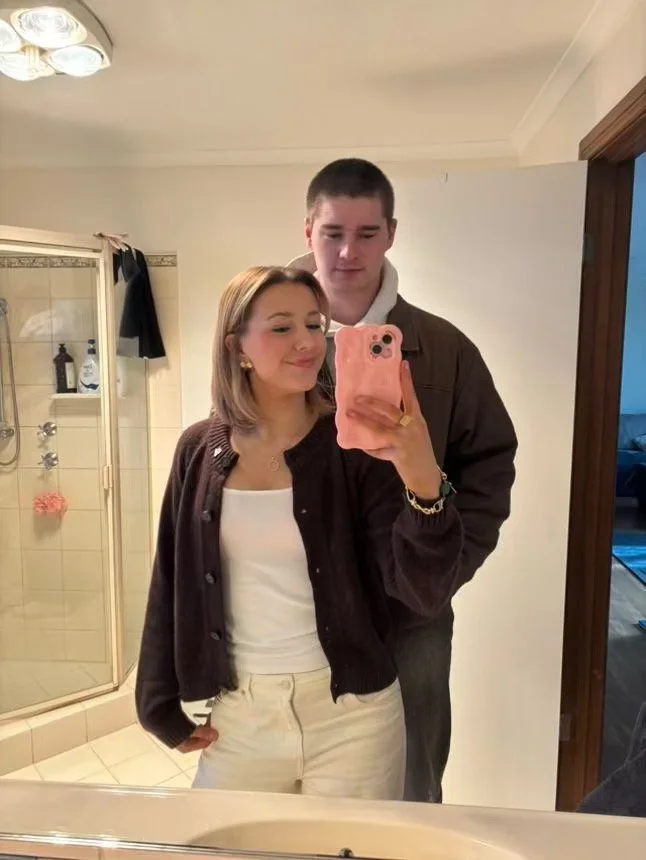"I was still just a teenager, trying to live a normal life"
My story begins from as young as 9 or 10. I recall coming home from school and just collapsing from back pain, wondering why no one else was as fatigued as I was. At 10, I experienced UTIs, constipation, and general pain - all of which I ignored thinking it was normal. I remember instances where I would have these “attacks”, where I would get stabbing pain in my stomach, lose vision, and become faint, which was just put down to me “not eating enough”.
I was 12 years old when I got my period. I knew immediately that something was wrong. The deep, fiery pain in my stomach made me think I was just having one of my “attacks”, but it just continued to get worse and worse. I ran to the bathroom thinking I was going to be sick, only to look down and find deep red blood everywhere. From that moment onwards, my periods were anything but normal.
Over the next few years, I experienced hell. My periods were irregular, sometimes I would menstruate three times a month, sometimes I wouldn’t menstruate at all. It was also at this time I had begun to explore sexual intimacy within my relationship (who I am still with now as a 19 year old). Sex for me was always uncomfortable, confusing, and as I got older, significantly painful. I missed dance competitions from flare ups that left me immobile on the floor of the shower, I missed school, I missed time with my friends from fear I would be too tired to participate.
It wasn’t until I was sixteen that I started my medical exploration into what might be happening with my body. The GP I saw diagnosed me with primary dysmenorrhea, and prescribed me the contraceptive pill. I vividly remember her saying, after I had expressed my concerns about my hormones, “friendships change at your age, I think that might be the emotional dysregulation you’re experiencing”. My hopes of finding answers were completely crushed. I went on to have severe allergic reactions to more than one contraceptive pill prescribed by that same GP.
At 17 years old, my symptoms had become truly unbearable. I could hardly get out of bed due to my fatigue. I was in Year 12 at school, and was the Secondary School Captain, so I felt like I needed to be in attendance regularly. I was nauseous 24/7, quite often throwing up in the bathroom at school. My endometriosis had started to really impact my mental health, and as a result I was later diagnosed with depression and anxiety. I had a phone consultation with my Specialist, and she booked me in for a laparoscopy two weeks later. The results of the laparoscopy showed that I had endometriosis tissue on my intestines and uterus, as well as the presence of adenomyosis and polycystic ovary syndrome. It was also discovered that I had “birth defects” on my womb, where a normal person’s is smooth, mine was scarred and rough.
Since my laparoscopy 16 months ago, my health journey has truly been full of ups and downs. It has really tested my resilience, being in and out of ER, receiving diagnosis’ of a vast range of other comorbidities, all while continuing to manage my everyday life. I only just feel like the puzzle pieces are starting to fit together in terms of understanding my health and my body, meaning that I can better advocate for myself going forward.
I have learnt so much about myself throughout this process. I think the most important thing I have learnt is to be kinder to my body and my brain and my soul. Growing up in a rural Australian town, there is a significant lack of understanding and resources surrounding conditions such as endometriosis; in fact, it is still very much taboo to even talk about. I felt inspired to start my own educational Instagram page, to create a safe space where anyone can come and learn about endometriosis, and the ins and outs of living with a chronic illness. It can be really scary and lonely dealing with these conditions, so that is what I am trying to do with my page. It’s time we start talking about women’s health.






